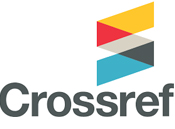Improving Mathematics Learning Outcomes Through Problem-Based Learning: A Study on Vocational High School Students in Class XI
Abstrak
This study contributes to improving the learning process of Mathematics among KKBT 1 SMK 4 Pekanbaru Stage 11 students in the school year 2023/2024 and improving their academic performance in Mathematics. The format of this study was classroom action research (CAR) conducted in two cycles, each consisting of six stages: providing motivation, identifying problems, collecting data, processing data, and proving and drawing conclusions. The study subjects were the students of class XI of KKBT 1 SMK 4 in Pekanbaru, totaling 33 students. Data were collected through observation and testing techniques. The tools used included learning tools, teacher and student activity observation forms, and mathematics learning outcome test forms. The data analysis findings showed that the learning process aligned with the lesson plan, and the students were active in the classroom. In addition, the number of students achieving the KKTP increased, i.e., the basic score was 8 or 24.24%; Cycle I increased to 13 or 39.39%; and Cycle II increased to 24 or 72.72%. Thus, through the application of the problem-based learning model, the learning process of the students of KKBT 1 SMK 4 Pekanbaru class XI, stage F, on the material of scatter diagrams for the even-numbered semesters of the academic year 2023/2024 has been improved, and their performance in mathematics has increased.
Referensi
Kemdikbud, “Permendikbud Nomor 58 Tahun 2014 tentang kurikulum 2013 Sekolah Menengah Pertama / Madrasah Tsanawiyah.” 2014.
S. A. Nugraha, T. Sudiatmi, and M. Suswandari, “Studi Pengaruh Daring Learning terhadap Hasil Belajar Matematika Kelas IV,” J. Inov. Penelit., vol. 1, no. 3, pp. 265–276, 2020, doi: 10.47492/jip.v1i3.74.
M. N. Mboa and T. Ajito, “Meningkatkan Hasil Belajar dengan Menggunakan Model Pembelajaran Problem Based Learning (PBL) pada Materi Peluang Siswa Kelas VIII SMPK St. Theresia Kupang,” J. Educ., vol. 6, no. 2, pp. 12296–12301, 2024, doi: https://doi.org/10.31004/joe.v6i2.5074.
U. S. Mustakim, “Efektivitas Pembelajaran di Era Normal Terhadap Hasil Belajar Mahasiswa Pada Mata Kuliah Matematika Diskrit,” Uniqbu J. Exact Sci., vol. 1, no. 1, pp. 41–45, 2020, doi: https://doi.org/10.47323/ujes.v1i1.15.
Kemendikbud, Salinan Lampiran Permendikbud No 16 Tentang Standar Proses Pendidikan Dasar dan Menengah. Indonesia, 2022.
H. M. Siregar, T. Solfitri, Kartini, and A. Permata, “Character Education in Mathematics Learning Through Habits of Mind Development to Support the Achievement of Students’ Cognitive Mathematical Ability,” Integr. J. Penelit. Pendidik. Mat., vol. 6, no. 2, pp. 140–151, 2024, doi: https://doi.org/10.24905/jppm.v6i2.128.
T. Pamungkas, Model Pembelajaran Berbasis Masalah (Problem Based Learning. Jakarta: Guepedia, 2020.
Y. F. Surya, “No TitlePenerapan Model Pembelajaran Problem Based Learning untuk Meningkatkan Hasil Belajar Matematika Siswa Kelas IV SDN 016 Langgini Kabupaten Kampar,” J. Cendekia J. Pendidik. Mat., vol. 1, no. 1, pp. 38–53, 2017, doi: https://doi.org/10.31004/cendekia.v1i1.7.
I. N. Fitriana and H. L. Mampouw, “Skema Kognitif Siswa dalam Menyelesaikan Soal Peluang Ditinjau dari Pendekatan Polya,” Mosharafa J. Pendidik. Mat., vol. 8, no. 3, pp. 353–364, 2019, doi: https://doi.org/10.31980/mosharafa.v8i3.572.
S. D. Ananda and E. Liana, “Improving Student Mathematics Learning Outcomes Through the Implementation of PBL Models for Students of Class VII H SMPN 23 Pekanbaru,” J. Res. Math. Instr., vol. 4, no. 1, pp. 53–62, 2022, doi: https://doi.org/10.33578/jrmi.v4i1.76.
E. Safitri, “Implementing the Problem-Based Learning (PBL) Model to Improve Learning Outcomes in Probability in Junior High Schools,” J. Res. Math. Instr., vol. 5, no. 1, pp. 50–59, 2023, doi: https://doi.org/10.33578/jrmi.v5i1.88.
S. Arikunto, Suhardjono, and Supardi, Penelitian Tindakan Kelas. Jakarta: Bumi Aksara, 2021.
T. Avianti, P. Yuanita, and Sakur, “Application of Problem-Based Learning Model to Improve Mathematical Problem-Solving Ability of Class VII-B Students of MTs PP Nurul Huda Lubuk Batu Jaya,” J. Res. Math. Instr., vol. 3, no. 2, pp. 44–53, 2022, doi: https://doi.org/10.33578/jrmi.v3i2.68.
F. Tawassalna and Hasnita, “Implementation of Problem-Based Learning (PBL) Model to Improve Students’ Learning Outcomes in Two-Dimensional Geometric Shapes Material,” J. Res. Math. Instr., vol. 4, no. 2, pp. 19–28, 2023, doi: https://doi.org/10.33578/jrmi.v4i2.82.
T. Solfitri, H. M. Siregar, Kartini, and A. Permata, “Facilitating Mathematical Creative Thinking Ability: Analysis of Validation, Practicality, and Effectiveness of Learning Modules,” J. Pendidik. Progresif, vol. 14, no. 1, pp. 619–634, 2024, doi: http://dx.doi.org/10.23960/jpp.v14.i1.202445.
##submission.copyrightStatement##
##submission.license.cc.by-nc-sa4.footer##





